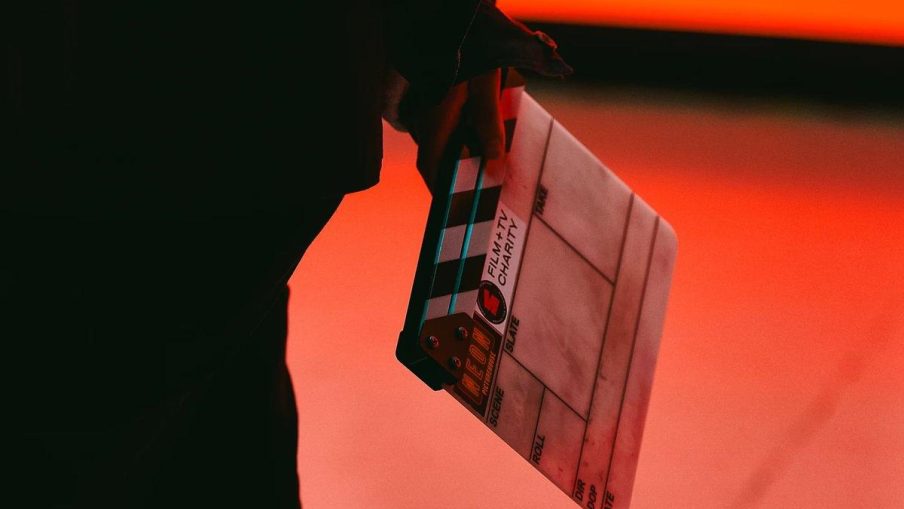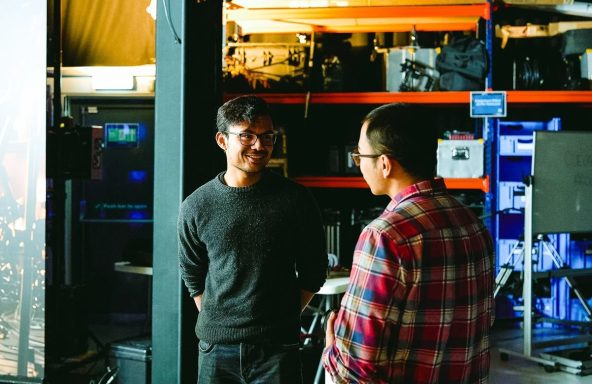How to thrive as a neurodivergent person in the film, TV, and cinema industry


The film, television, and cinema industries can be exhilarating, creative, and full of possibility. In fact, it is ideal for many neurodivergent professionals, particularly those with ADHD, Autism, Dyslexia, or Dyspraxia. Fast-paced production schedules, creative storytelling, and the variety of roles available can be a constant source of dopamine.
At the same time, if we work on-set, we are told where to be, at what time and, best of all, someone feeds us at least two meals – every day! But these best parts can often also be the worst when we are unable to maintain balance.
Notoriously fast-paced, unpredictable, and overwhelming, there is often not enough time for our neurodivergent brains to process and recover. Even worse, as so many are freelancers, there are those dreaded ‘between job’ days, weeks or even months, where the risk to a neurodivergent’s mental health is extremely high.
However, if you can learn to work with your brain rather than against it, ultimately finding the all-important balance, thriving in our wonderful industry can become much easier.
What does neurodivergent mean?
Neurodivergence refers to a way of thinking, processing, learning, interacting, and responding that differs from the majority. Just as biodiversity includes all life forms, neurodiversity encompasses everyone, with neurodivergence describing those who diverge from the typical neurological norm.
The term includes various diagnoses such as:
Understanding neurodivergence
While medical definitions exist for good reason, they often overlap significantly. For instance:
- 50% – 70% of autistic individuals also are ADHD
- 60% of neurodivergent people experience multiple (up to four) co-occurring conditions, though most are only ever diagnosed with one
It is also important to note that not everyone is ‘a little bit on the spectrum’ or has traits of ADHD to a diagnosable extent.
To be considered neurodivergent, an individual must have significant differences across multiple traits. Due to the high prevalence of multiple neurodivergences, many individuals prefer the term ‘neurodivergent’ over ‘neurotypical’, as diagnostic categories can often feel too restrictive.
Disability support
Support and resources for Disabled and neurodivergent professionals working behind-the-scenes in the film, TV, and cinema industry
Please note
Neurodivergence is not a mental health disorder. It’s a neurological difference, like having a different operating system. It can be compared to Mac vs Windows.
4 practical ways to thrive as a neurodivergent in film, TV and cinema
Many neurodivergent professionals, across all industries, spend years masking (consciously or unconsciously), hiding their true selves to fit in, or to be seen as more ‘professional.’ But masking is exhausting and unsustainable, and the real toll is often burnout, anxiety, unexplained pain, autoimmune conditions or other mental health difficulties.
So, the question is, how do you unmask? How can you feel safe enough to trust your instincts, ask for what you need, and set yourself up to thrive, not just survive?
Let’s look at the ways you can do this:
1. Understand and embrace how your unique brain works
Neurodivergent brains often come with exceptional strengths, like:
- Hyperfocus
- Big-picture thinking
- Emotional sensitivity
- Lateral problem-solving
- Authenticity
The key is to identify your strengths, own them, and build your workflow around them. The beauty of our industry is that there is a job to suit every brain.
Ask yourself:
- What energises me?
- When am I most creative or productive?
- What kind of feedback do I consistently get from others?
2. Create systems that work for you, not against you
What works for one person, doesn’t always work for another so it can be hard to know which tools might help you. A coach can help you read the map to your amazing neurodivergent brain and enable you to find solutions that work for you.
Executive functioning skills can be up to 30% developmentally delayed in neurodivergents. It is important to know which of these might be sabotaging your strengths so that you can select the right tool to help find balance.
- Self-awareness
- Problem-solving
- Motivation
- Impulsivity
- Memory
- Time-blindness
- Emotional regulation
It’s not about doing things the neurotypical way, it’s about finding sustainable ways to support your focus, energy, and wellbeing.
3. Ask for your what you need without an apology
You do not need a formal diagnosis to ask for support or adjustments.
In the UK, reasonable adjustments are a legal right under the Equality Act 2010 – including in the creative industries.
Whether it’s more notice before meetings, a quiet space to decompress, or written instructions rather than verbal ones, being upfront helps everyone.
You might say one of the following:
- “I process information better in writing. Could you follow up with an email after meetings?”
- “I can concentrate more in meetings if I am able to doodle or fiddle with something, please know that I am not being rude or not listening if I do this.”
Being clear and direct not only protects your energy, but it can also help shift the culture for others too.
4. Build your Neurodivergent-friendly network
The industry is full of other neurodivergent creatives – many of them hiding in plain sight. Seek them out. Connect. Share experiences and resources.
Seek out:
-
Neurodivergent peer support groups
Online ADHD/autism communities in media
-
WhatsApp or Slack chats
-
Mentorship programs
Your neurodivergence isn’t something to “overcome.” It’s a different operating system with so many strengths and huge creative potential. By working with your brain instead of against it, you can carve out a way of working that not only sustains you but inspires others.

Industry communities and peer support
Organisations and groups that can help you build vital connections and supportive relationships